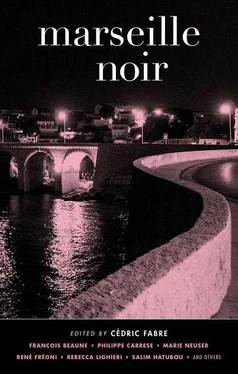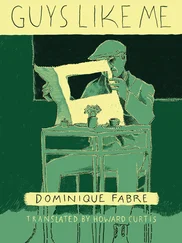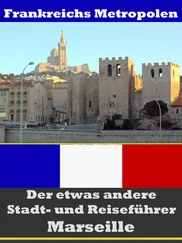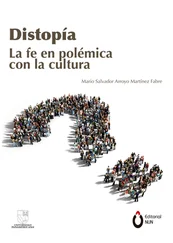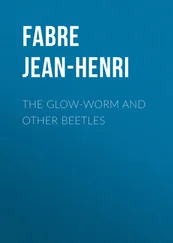Cédric Fabre - Marseille Noir
Здесь есть возможность читать онлайн «Cédric Fabre - Marseille Noir» весь текст электронной книги совершенно бесплатно (целиком полную версию без сокращений). В некоторых случаях можно слушать аудио, скачать через торрент в формате fb2 и присутствует краткое содержание. Год выпуска: 2015, Издательство: akashic books, Жанр: Крутой детектив, на английском языке. Описание произведения, (предисловие) а так же отзывы посетителей доступны на портале библиотеки ЛибКат.
- Название:Marseille Noir
- Автор:
- Издательство:akashic books
- Жанр:
- Год:2015
- ISBN:нет данных
- Рейтинг книги:5 / 5. Голосов: 1
-
Избранное:Добавить в избранное
- Отзывы:
-
Ваша оценка:
- 100
- 1
- 2
- 3
- 4
- 5
Marseille Noir: краткое содержание, описание и аннотация
Предлагаем к чтению аннотацию, описание, краткое содержание или предисловие (зависит от того, что написал сам автор книги «Marseille Noir»). Если вы не нашли необходимую информацию о книге — напишите в комментариях, мы постараемся отыскать её.
Marseille Noir — читать онлайн бесплатно полную книгу (весь текст) целиком
Ниже представлен текст книги, разбитый по страницам. Система сохранения места последней прочитанной страницы, позволяет с удобством читать онлайн бесплатно книгу «Marseille Noir», без необходимости каждый раз заново искать на чём Вы остановились. Поставьте закладку, и сможете в любой момент перейти на страницу, на которой закончили чтение.
Интервал:
Закладка:
Djawad crashed onto Richard’s hood before he ended up wedged between the left side of the Twingo and the right side of the Fiat 500. No luck. There was no room left for him between the two. The metal bodies acted like a press. The cracking of his bones was reminiscent of the irritating noise of a cockroach being crushed under a leather sole. Djawad’s scooter landed heavily on the roof of the Twingo, which did not prove to be particularly resistant. Francine now had a real problem. As for Richard, he ended his trajectory embedded in a low wall after rolling over twice. This time he really had something under the hood, on the hood, and all around it. Richard cursed his mother once more. With a Porsche Cayenne, he might have survived the collision.
The paramedics’ problem was deciding where to start: with the kid shot with a.357 next to his garbage cans, or with the mass grave at la Cayolle rotary. They started with the traffic fiasco, a problem definitely less common and more complex than drug dealers killing each other. Because in Marseille, the real problem is that it’s easier to put a hit on someone than to drive a car.
The PROSECUTion
by PIA PETERSEN
Vieux-Port
Once upon a time there was a man sitting in a café drinking his beer, looking at the street and beyond the street, at the square and the port and the cars speeding between the street and the square and the port. He was in a very bad mood and he felt like insulting someone but he didn’t know who, only that it could be anybody. He had been angry for so long.
He had made his decision and he intended to do exactly what he had written that very morning in his diary. If they wanted to know why, they could just read what was written there.
The why of the why was a murky and confused story and nobody would really understand the generosity of his act but that was not sufficient reason for giving up.
He had put the diary on his living room table so that everybody could see it. One day, someone would read it.
Once upon a time there was a man who landed in Marseille, a city that faced out toward the sea and turned its back on France. Marseille had changed names again and again because it was too rebellious said some, too much of a mess said others, but nobody really knew. The man had landed with a great deal of enthusiasm, with plans and even with money to last him awhile but a few years later he had no enthusiasm, no plans and no money at all and now he was too poor to leave the city. I’m stuck here, I’m stuck in this bitch of a city, he said to the few people he associated with.
He used to be a poet, a philosopher, a writer, a great reader and a humanist, that’s what he replied when people asked him who he was. I like the proximity of seismic faults, he told his friends to explain why he was moving to Marseille, he said it was a logical poetic choice, even though he would have preferred the seismic fault of Los Angeles, it looked classier but it was too far away, too expensive, too dangerous, too complicated and he didn’t know what an ESTA was, they had explained at the American Embassy that it was an Electronic System for Travel Authorization, which had seemed to him an insurmountable hurdle and so he landed in Marseille one fine morning to live in a little studio on rue Francis Davso at the Vieux-Port, right near the opera and its whores, or ladies of the night as they were sometimes called. He didn’t know there weren’t any seismic faults, Marseille felt like a city on the brink of disaster and everything else was just details. From his window, he could see the dumpsters from the fast-food restaurants on rue Glandèves and sometimes a rat would scoot out of the sewers to the garbage cans.
In Marseille nobody asked him for an ESTA, that would have been the last straw.
He could have settled in Haiti where they also had a major seismic fault. Or Japan where he could have lived right on the fault.
At first it was magical. Every day he would cross cours Honoré d’Estienne d’Orves, an Italian-style mineral square, a trendy concept a friend told him with a mysterious air but he saw only an empty concrete square, no lawn/trees/flowers. He would stroll along the Vieux-Port on one side and then on the other, taking the ferry that crossed the harbor several times a day and then walk back, passing under a strange roof that someone had built right in the middle of the port. Maybe it was built to shade people from the sun, he said to himself. But why there, why precisely that spot? He never got an answer. When he asked his friends who lounged around the neighborhood for hours on end, as he did, they would lean back and look at the roof but nobody knew. One of them said it was to reduce the smell of fish from the market where the early-morning catch was sold, a kind of lid but no one thought this a plausible answer.
He was living a cliché, having an aperitif right after lunch with his friends at Bar de la Marine, drinking pastis with relish while enjoying the life around the port, there was a tree on quai de Rive Neuve, just one, and the sun was always shining in a blue sky and the women walked with a slow and nonchalant gait. Bar de la Marine was famous thanks to Marcel Pagnol’s film trilogy, which took place in an imaginary bar of the same name, so it was fortunate that such a place actually existed and Pagnol was Marseillais even though he was born in Aubagne, everybody knew that and as far as he was concerned he was having drinks in a literary environment and he liked that. The Vieux-Port wasn’t just a port with boats, it was a place where people lived, it was the MuCEM and the Pharo and the rocks of Fort Saint-Jean from which kids would dive and swim, the place aux Huiles, rue Sainte with its restaurants and the suicidal Canebière that threw itself into the sea, that’s what they said in guidebooks and often in novels, it was the café Olympique de Marseille and la Caravelle, a jazz restaurant-bar where the waiters always ignored him, city hall and the parking garage built at the spot where the César museum should have stood, the Eglise Saint-Ferréol les Augustins, the boats and especially the three-master that had sunk and was never brought up because it would have cost too much, they just cut off the masts, marked its outlines and that way they had a liquid public square, a mineral square made in Marseille, and there was the little blue train that went up to Notre-Dame-de-la-Garde, there was noise and tourists and sometimes strange gangster-looking guys and in the morning the fish market which was also the name of the theater on quai de Rive Neuve.
He would end his evenings right near his studio in the most fanciful and extravagant café in the neighborhood, l’Unic, where the bad boys erupted from time to time to kill each other, it was one of the only cafés that stayed open all night and as a regular he had his own barstool and if ever he was absent, which did happen once in a while, Dominique, the boss, would ask where he had been. She truly loved her customers and followed their latest news. She didn’t say latest news because she never went online, she said she kept herself informed because her customers were long-term customers. She never used the expression from way back. Dominique was sensitive to this new era that transformed mankind into a mere economic vector, of value only until his sell by date or the expiration date for consumption.
A doll wearing glasses hung behind the bar, family snapshots and postcards were pasted to the wall, a little bear lay on the bottles and a disco ball rotated on the ceiling, reflecting the lights. On a shelf, an old photo of Edith Piaf and a pirate mask and several Enki Bilal reproductions. A fat dog slept on the bench seat.
Marseille was the city where anything was possible and they had been saying for a long time, for ages, that soon business would pick up and the city would become important, it was a city where the cards always had to be redealt, where everything was yet to be done, where nothing ever seemed finished or followed through to the end, a city of its time, rickety and unique because funds to bolster the economy were misappropriated by civil servants and politicians. In Marseille, it was all kept in the family.
Читать дальшеИнтервал:
Закладка:
Похожие книги на «Marseille Noir»
Представляем Вашему вниманию похожие книги на «Marseille Noir» списком для выбора. Мы отобрали схожую по названию и смыслу литературу в надежде предоставить читателям больше вариантов отыскать новые, интересные, ещё непрочитанные произведения.
Обсуждение, отзывы о книге «Marseille Noir» и просто собственные мнения читателей. Оставьте ваши комментарии, напишите, что Вы думаете о произведении, его смысле или главных героях. Укажите что конкретно понравилось, а что нет, и почему Вы так считаете.
